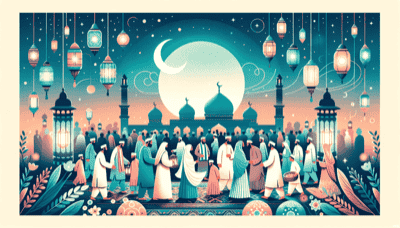We're here to help you keep count of the days to or since a date. Just click the button below and enter your chosen date to get started. Also choose the suggested days or search for a special day above #countingthedays

Eid al-Adha, also known as the Festival of Sacrifice, is one of the most important Islamic holidays celebrated in Pakistan. It falls on the 10th day of Dhu al-Hijjah, the last month of the Islamic lunar calendar, commemorating the willingness of Prophet Ibrahim (Abraham) to sacrifice his son Isma'il (Ishmael) as an act of obedience to God. However, before Ibrahim could carry out the act, God provided a ram to sacrifice instead.
The history of Eid al-Adha is rooted in religious traditions that date back thousands of years and are shared among several Abrahamic faiths. In Pakistan, as in other Muslim-majority countries, traditional practices include:
Takbir: Recitation of the Takbir (declaration of faith) starts from the evening before Eid and continues until the Eid prayer.
Eid Prayer: The day begins with Muslims performing an early morning congregational prayer at mosques or open areas called Eidgahs.
Sacrifice: After prayers, those who can afford it perform Qurbani - sacrificing a halal animal such as a goat, sheep, cow or camel. This act symbolizes obedience to Allah and commemorates Ibrahim's devotion.
Distribution: The meat from the sacrificed animal is divided into three parts: one-third is given to relatives, friends and neighbors; another third is distributed to the poor and needy; and the remaining third is kept by the family.
On this day in Pakistan:
Families gather for special meals and festivities.
People wear new or their finest clothes and exchange gifts.
Individuals visit friends and relatives.
Special efforts are made to include vulnerable members of society in celebration by sharing food and gifts.
Eid al-Adha is not only a time for celebration but also a period for reflection on sacrifice and charity. It reflects a blend of solemn religious observance and communal festivity.